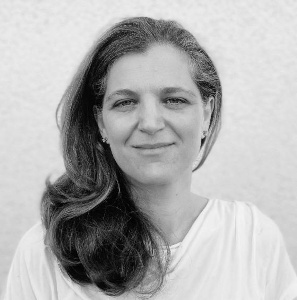- Imprimer
- Partager
- Partager sur Facebook
- Partager sur X
- Partager sur LinkedIn

Nadia (Nina) ALAILY-MATTAR
is a researcher and lecturer at the Chair of Urban Development at the Technical University of Munich (TUM). She is an architect with a Master of Science degree in Housing and Urban Regeneration from the London School of Economics and Political Science (LSE) and a PhD in Planning Studies from University College London (UCL). She is recipient of the Alexander von Humboldt fellowship, which she spent at the Delft University of Technology. Her research focuses on elite architectural practices, the interplays of architecture and media, and the role of architecture in urban transformation processes. She has published numerous peer-reviewed articles, amongst others, in the Architectural Theory Review, European Planning Studies, Journal of Urban Design, and International Journal of Architectural Research. She is co-editor of the book About Star Architecture- Reflecting on Cities in Europe.
Project at the MaCI
January 2024 - July 2024
MASCoF is a research project about architecture, digital communication media, and power relationships. Against the backdrop of the increasing encroachment of social media in people’s everyday lives, MASCoF will explore how powerful actors mobilize architecture for the production of representations of futures, which, when mediated and circulated, contribute to social constructions of reality.
Using case study research MASCoF will delve into the diverse ways in which large-scale architectural projects—both realized and conceptual—emerge as focal points for wider sets of social claims regarding the future. This will entail teasing out the contradictions between the portrayal of the selected case studies as value-neutral and technical and their instrumentalization and politicization to serve power interests. The focus of the investigation is the circulation of renderings and promotional videos of the selected case studies on social media. What narratives of futures are these projects promoting? How is architecture used to communicate these narratives? What role does mediated architecture play in sustaining the conversation about such futures?
MASCoF connects architecture, media, and power; it argues that the speeds, volumes, scopes, and nature of the distribution of architectural representation afforded by digital communication contribute to social constructions of reality. The objective of MASCoF is to generate new thinking about architecture in the age of social media and enable cross-fertilization from media studies, digital humanities, sociology, political science, future studies, and architecture. The overarching goal is to contribute knowledge about the potential role that mediated architecture can play in perpetuating power structures.
Activities
- 18 June 2024 - GATES Evening talk Mediated spatial futures: the political mobilization of architecture in the age of social media
Funded by the French government's Programme d'Investissement Avenir and implemented by ANR France 2030
- Imprimer
- Partager
- Partager sur Facebook
- Partager sur X
- Partager sur LinkedIn
